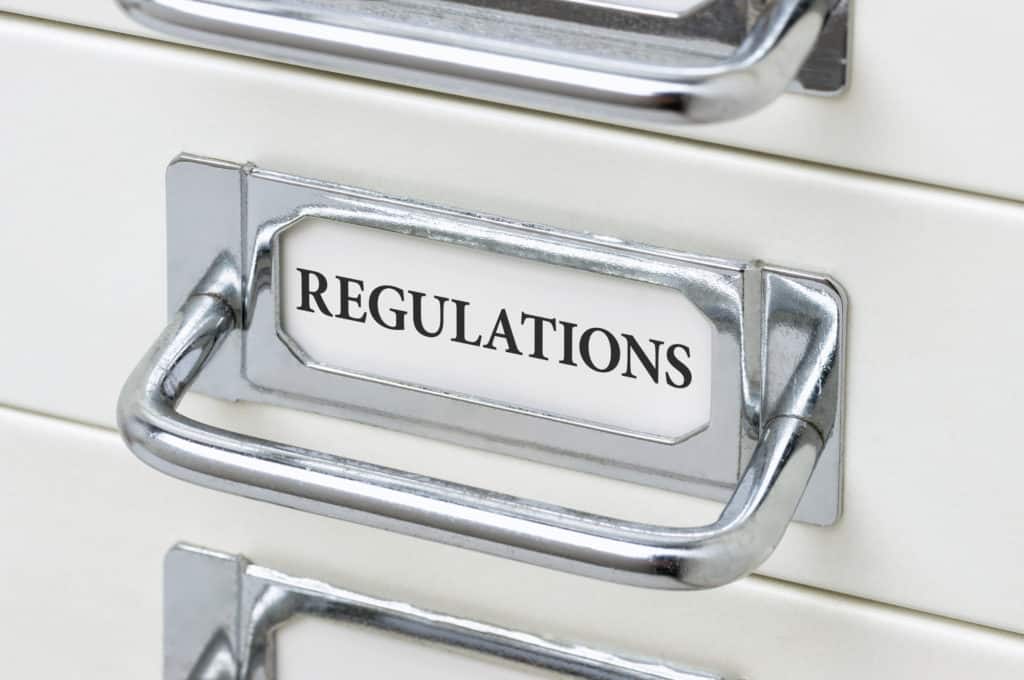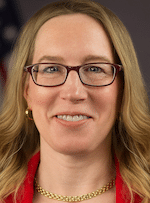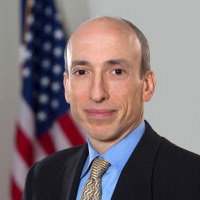

Supervision of decentralized finance is likely to take an “enforcement first” approach as regulators will take time to put a framework in place and there is increased scrutiny on the sector.
Decentralized finance, DeFi, or Open Finance, uses smart contracts automatically executing on blockchains. Information on a blockchain is immutable, it cannot be changed without consensus, and trusted information can then be tokenized and traded.
This allows any user on a blockchain to stake digital assets as collateral and provide services such as lending or liquidity without the involvement of a traditional financial intermediary such as a banks, broker or exchange.
Jacob Yunger, director financial innovation at FINRA, which regulates US broker-dealers, said enforcement is likely as DeFi is not monolithic and different kinds of financial services are being provided.
Yunger spoke on a panel, Regulating the DeFi Frontier: Where Consumer Protection and Financial Innovation Collide, hosted by Merkle Science, which provides a cryptocurrency risk and intelligence platform.
? Live in an hour! ?
Last chance to join industry leaders from @FINRA , NY DFS, U.S. CFTC, @CryptoUKAssoc , and Merkle Science as they discuss the state of DeFi regulations today at 9:00 am ET. Register now: https://t.co/wSBSjTIerE https://t.co/POuiPetrvW
— Merkle Science (@MerkleScience) August 12, 2021
Yunger said: “There are going to be a lot of enforcement first situations because DeFi can provide unique services without the investor protection in traditional finance. FINRA is all about investor protection.”
Philip Raimondi Sr., assistant general counsel at the Commodity Futures Trading Commission, which regulates derivatives, said on the panel that regulators do not want to bring an enforcement action first.
“In a perfect world we would love to be able to have as many conversations as possible as well but ultimately, there is going to be that mix because regulators obviously have to respond to different things that we’re seeing,” he added.
He continued that the CFTC wants to promote responsible innovation but Congress has not approved retail investors being able to make peer-to-peer derivatives transactions.
Enforcement
On 10 August 2021 the CFTC entered a consent order against five companies charged with operating BitMEX which requires the cryptocurrency derivatives trading platform to pay a $100m civil monetary penalty.
ENFORCEMENT NEWS: Federal court orders BitMEX to pay $100 million for illegally operating a cryptocurrency trading platform and anti-money laundering violations. More here: https://t.co/sjlubs0rTT
— CFTC (@CFTC) August 10, 2021
Vincent McGonagle, acting director of enforcement, at CFTC, said in a statement: “This action highlights that the registration requirements and core consumer protections Congress established for our traditional derivatives market apply equally in the growing digital asset market. Cryptocurrency trading platforms conducting business in the U.S. must obtain the appropriate registration, and must implement robust Know-Your-Customer and Anti-Money Laundering procedures.”
On 9 August 2021 the Securities and Exchange Commission announced that Poloniex has agreed to pay more than $10m to settle charges for operating an unregistered online digital asset exchange.
Today we announced that Poloniex LLC has agreed to settle charges for operating an unregistered online digital asset exchange in connection with its operation of a trading platform that facilitated buying and selling of digital asset securities.
? https://t.co/czInVXh4KI pic.twitter.com/S4YPhq0Xnp
— SEC (@SECGov) August 9, 2021
According to the SEC’s order, the Poloniex trading platform met the criteria of an “exchange” as defined by the securities laws because the trading platform provided the non-discretionary means for trade orders to interact and execute through the combined use of the Poloniex website, an order book, and the Poloniex trading engine.
Kristina Littman, chief of the SEC enforcement division’s cyber unit, said in a statement: “Poloniex attempted to circumvent the SEC’s regulatory regime, which applies to any marketplace for bringing together buyers and sellers of securities regardless of the applied technology.”
However, SEC Commissioner Hester M. Peirce objected to the order in a statement as she said the action “doubles down on the Commission’s enforcement-centric approach to crypto.”
Thoughts on Poloniex action, which reflects our continued enforce-don't-figure-out-how-to-reasonably-regulate approach: https://t.co/XScIMTFTDd
— Hester Peirce (@HesterPeirce) August 9, 2021
Peirce added that during the period at issue (mid 2017 through 2019), the SEC was moving very cautiously with respect to regulated entities’ engagement with crypto assets.
“Sure, Poloniex could have tried to register as a securities exchange or, more likely, as a broker-dealer to operate an alternative trading system (ATS), a type of regulated trading venue that might be better able to accommodate non-traditional securities,” she added. “Had it done so, it likely would have waited . . . and waited . . . and waited some more.”

Hester Peirce, SEC
She continued that regulators should address issues raised by entities that want to participate in this area expeditiously and in a way that acknowledges the need to come up with sensible solutions.
Matthew Homer, executive in residence at Nyca Partners and former executive deputy superintendent, research & innovation at New York State Department of Financial Services, said on the panel that more enforcement activity is likely before fully fledged regulatory frameworks are put in place.
“I think there’s an opportunity to really think about the future of regulation in the context of DeFi,” Homer added. “Financial services will be more automated and digital, and regulation and supervision will have to adapt to not using labour intensive efforts such as on-site examinations.”
Homer continued that there is also an opportunity for DeFi platforms to step forward and propose regulatory frameworks that could be effective.
Mary Beth Buchanan, executive vice president Americas & global chief legal officer at Merkle Science, said on the panel that it is tough to regulate entities if the people behind the project are anonymous and no-one has been given the responsibility of ensuring regulatory compliance.
Yunger said that one of the areas where FINRA would like more information from the protocol runners is what concentration of control and governance means, and how they think about real world risks such as systematic risks between protocols.
Raimondi added that the CFTC has always seen new asset classes and is used to constantly having to adapt and adjust.
“We are excited to see the different ways in which some of these DeFi applications can innovate and offer technological advancements in how people conduct their everyday lives and add additional efficiencies in derivatives markets,” he said.
Buchanan said institutional money is already flowing into DeFi.
“These investors ares sophisticated and DefI is definitely a good fit for that type of user,” she added. “I’m not so sure that it’s ready yet for traditional retail customers.”
Congressional scrutiny
Senator Elizabeth Warren had written to Gary Gensler, SEC chair, in July asking him if the regulator had sufficient powers over crypto platforms.
Gensler's letter to Warren on #crypto #finreg https://t.co/ySHmB8GoDw pic.twitter.com/SxxL9RlA9E
— Virginie O'Shea (@virginieoshea) August 12, 2021
Gensler replied that he believes that investors using these platforms are currently not adequately protected.

Gary Gensler, SEC
He continued that certain rules related to crypto assets are well-settled and the test to determine whether a crypto asset is a security is clear. The SEC has taken and will continue to take its authorities as far as they go but there are gaps.
“I believe we need additional authorities to prevent transactions, products, and platforms from falling between regulatory cracks,” added Gensler. “We also need more resources to protect investors in this growing and volatile sector.”






